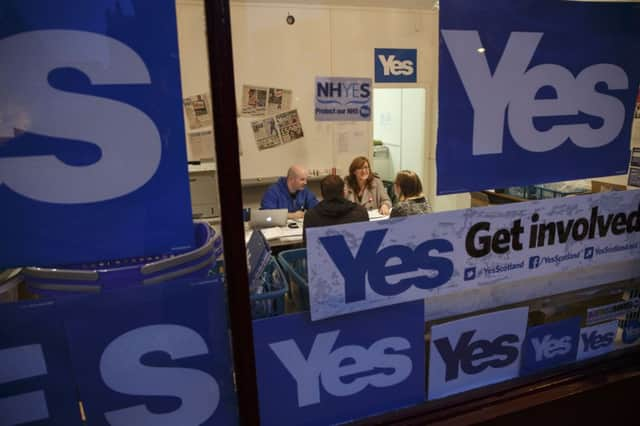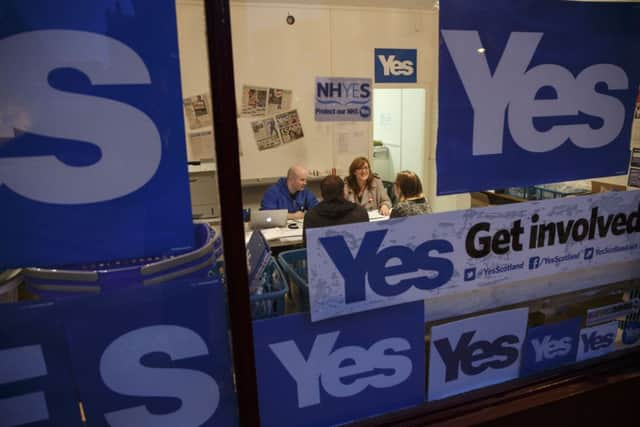Scottish independence: ‘Positive Yes sways voters’


The recriminations are already emerging amid claims that Better Together “went to sleep” on the referendum campaign, following YouGov’s shock poll which gave the Yes camp a two-point lead. Another survey by pollsters Panelbase had No in front by four points (52 per cent to 48 per cent), while the latest poll of polls has the gap at six points (53 per cent to 47 per cent) in favour of No, suggesting the race is wide open.
A growing number of women and Labour voters moving towards Yes have also seen support for independence soar, it is believed.
Advertisement
Hide AdAdvertisement
Hide Ad

YouGov expert Joe Twynam said yesterday: “Ultimately, it comes down to the fact that people are switching sides, but more importantly those who haven’t previously known what to do are making a decision and they are going over to Yes.”
Undecided voters are breaking “two to one”, in favour of Yes, the polling chief added.
“It was always going to be decided on the Don’t Knows and the people who didn’t know if they were going to vote at all. Over the past year we’ve been showing really stable results in favour of No. I think the Yes campaign were worried by that, but the No campaign became almost complacent, relaxed about what was going on.
“But in the last month things have changed.” He added: “A dislike of what’s going on in Westminster is important – so people want to be independent from Westminster as well as being independent from the rest of the UK.
“But ultimately it comes down to whether people think they will be better off with independence or better off staying part of the Union. What’s changed recently is that all the uncertainty and distrust that the Better Together campaign was promoting, that negative image about not knowing what’s going to happen with the economy, that’s being replaced by the optimism and the enthusiasm of the Yes campaign.
“The question with 11 days to go is will that stick or when it comes to the ballot box on 18 September, will people think ‘Will I really be better off?’.”
But Mr Twynam insisted that it remains “too close to call” at the moment.
Advertisement
Hide AdAdvertisement
Hide AdTory peer Lord Archer agreed that the No campaign has become complacent. “About a month ago, when Alistair Darling won the first debate – and he clearly won it, there wasn’t any doubt about that – we all went to sleep,” he said.
“I was going around saying [the result will be] 60-40, what are we worried about, Darling won easily. The comeback has been amazing.”
The Yes camp is also welcoming findings of the Panelbase poll which suggests that the gender gap has all but disappeared, with support among women standing at 47 per cent, just a point below men. First Minister Alex Salmond also appears to be enjoying some success in wooing Labour voters with more than one in three of this group now planning to back independence, according to the YouGov findings.
A new study also suggests the more information people have in the run-up to the independence referendum, the more likely they are to vote Yes. Research carried out at Edinburgh University found that information contributed to increasing support for independence “when it meets a ‘fertile soil’,” such as those who are more politically active.
SEE ALSO